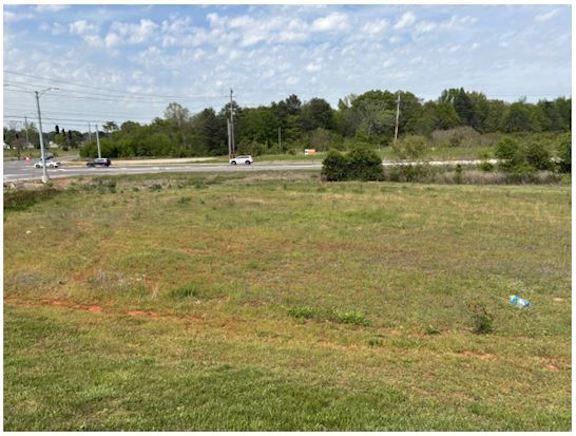Decatur doctor provides cutting-edge skin cancer removal
Published 6:30 am Friday, October 26, 2018

- Dr. Angelo Mancuso, a dermatologic surgeon in Decatur, stands next to the latest edition to his dermatology clinic — a Superficial Radiation Therapy radiation unit. He said he is the first in North Alabama to remove non-melanoma skin cancers using the SRT procedure.
As the incidence of skin cancer — in all of its forms — continues to rise, doctors like Dr. Angelo Mancuso, a Decatur-based dermatologic surgeon, seek to keep pace with the latest in skin cancer removal procedures.
In 1989, Mancuso opened the Southern Dermatology and Advance Skin Cancer Center on U.S. 31 in Decatur, and just three years later was the first in the North Alabama region to introduce microscopically controlled surgery to his patients.
Trending
Also known as Mohs, the procedure is still considered to be the most-effective technique for treating many basal cell carcinomas and squamous cell carcinomas, the two most common forms of skin cancer, according to the Skin Cancer Foundation.
Mancuso said the procedure has a 98 to 99 percent rate of effectiveness.
During Mohs surgery, thin layers of cancer-containing skin are progressively removed and examined until only cancer-free tissue remains.
“With Mohs, we cut the tissue a special way, little by little, which allows me to look at each section of tissue under a microscope right then and there as opposed to freezing it and sending it away to be analyzed at an outside lab,” Mancuso said.
“When you see a skin cancer, you are only seeing the tip of the iceberg,” he said. “It actually is much deeper and wider than what meets the eye. That is why doctors cut out so much skin when removing a cancer. They want to make sure they get it all.”
The Mohs procedure, however, allows dermatologic surgeons to spare as much tissue surrounding the skin cancer as possible, making it an ideal procedure for visible areas such as the face.
Trending
Although he pioneered the procedure in North Alabama, Mancuso said he is grateful that a growing number of Tennessee Valley dermatologists now offer the Mohs procedure to their patients.
Twenty-six years after being the first to introduce the Mohs procedure to the Valley, Mancuso said his clinic is once again “the most accurate skin care center in North Alabama” after adopting yet another cutting-edge modality, Superficial Radiation Therapy or SRT.
Performed in the office by a doctor and technicians who are trained in using SRT, the procedure uses very focused, low-dose radiation that goes only skin-deep, so side-effects to other organs and other tissues are limited. Patients receive a series of short (30 second) and painless treatments, usually once or twice a week over a series of weeks.
SRT is used to treat non-melanoma forms of skin cancer, including basal cell and squamous cell cancers. Both types can develop after years of sun exposure or from tanning bed use. Since tanning beds became popular in the 1980s, Mancuso said he has seen a significant increase in patients with these types of skin cancers. SRT is not used to treat people with melanoma, the deadliest form of skin cancer.
SRT is more than 95 percent effective in preventing the skin cancer from returning, making it attractive to a broad range of patients, he said. Additionally, SRT does not require anesthesia, which Mancuso said is good for patients who are already in ill health. He said the procedure is also a better option for those with bleeding disorders because it does not require cutting or stitching. Mancuso also recommends SRT to treat skin cancers on sensitive areas of the body or in areas such as the shin, where skin-grafts are difficult to perform. The procedure leaves no unsightly scarring, nor does is require any down time or lifestyle restrictions, he said.
“You could have the procedure in the morning and an hour later you could be out there riding a bike or hiking,” he said. “That makes the procedure very attractive to a lot of my patients.”
Since incorporating SRT at his Decatur clinic, Mancuso said he has seen a surge in out-of-state patients seeking the new procedure.
“Some people just don’t want to be cut on or they have had so many surgical procedures they just don’t want to go through another one,” he said. “Other people tell me they like SRT because they can go right back to their normal activities.”
Although Mohs, which continues to be the gold standard in skin cancer treatment, is covered by most medical insurances, SRT is less likely to be covered. For example, Blue Cross Blue Shield doesn’t include SRT in its coverage, whereas Medicare does.
In addition to his main clinic in Decatur, Mancuso has satellite offices in Madison and Florence. He is currently accepting patients at all three locations. For more information call 256-351-9996.





